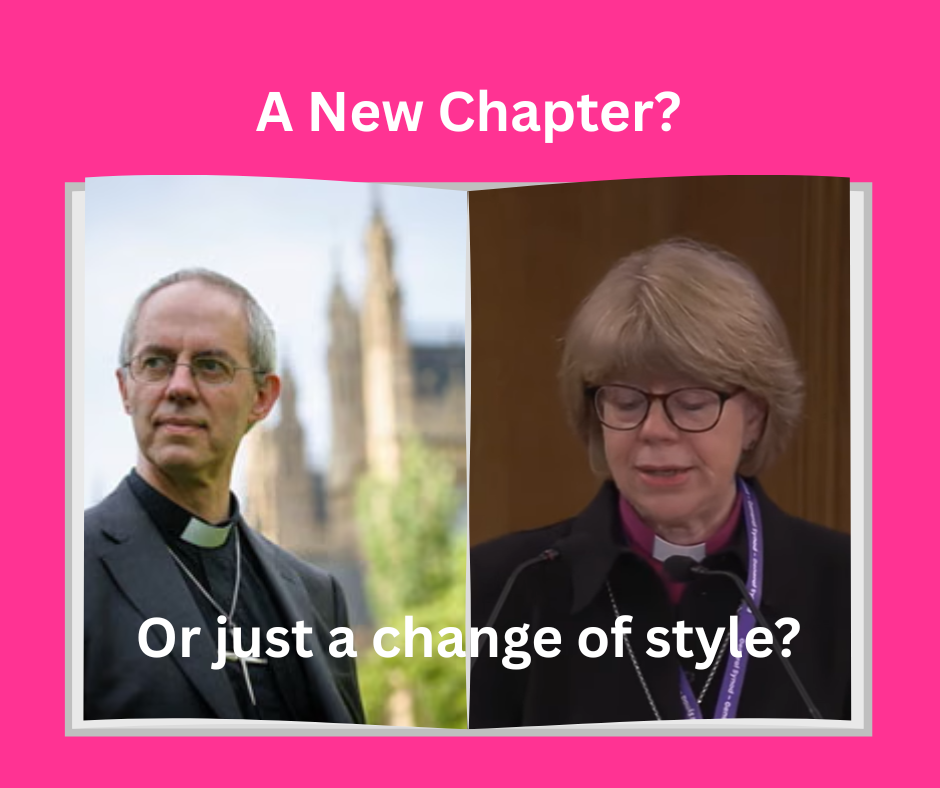Anglican Myth 1 - " It's my church, I'm the incumbent,"
- Anglican Futures

- Jan 26, 2023
- 3 min read
Updated: Aug 13, 2024
The Bishops of the Church of England's response to the Living in Love and Faith process is grievous and will tear the fabric of the Church of England at its deepest level.
We are posting these blogs on Anglican Myths at this time, not as a means of pouring salt into open wounds but to warn of sticking plasters that will, in the end, just cover over a festering sore.
Those who have been in the Church of England for any any length of time are very used to an emphasis on the local parish church.
We may have heard about deaneries and dioceses, bishops and archdeacons, but they are distant bodies with which we have little contact. In part, that is good; the vicar is meant to focus on the mission of the local church. In part it is less good; it has been the ‘breadth’ of the Church of England, which has meant many evangelical churches have had little in common with nearby clergy or parishes.
The bigger the church, the more this sense of being an ‘independent’ body can percolate into the way we do things. Some churches have enough wealth and professional expertise to mean they rarely have to call on the diocese in any meaningful way. Some try to distance themselves from their bishop and diocese.
But the way the Church of England is set up in its rules (called canons and measures) and decision-making bodies (called synods), doesn’t allow for this kind of 'independence.’ The reality is that the bishop and the vicar share responsibility for the parish.
It is seen when a new vicar needs to be appointed. The bishop often writes an introduction to the Parish Profile (the church equivalent of a job description) and the bishop is always represented on the interview panel. When someone is selected, the bishop must give their permission for them to be appointed. This permission is not just a stamp of approval from Senior Management – it is something far more fundamental.
This is because the Church of England describes the task of being a vicar (or rector) as having the ‘cure of souls’ – meaning the responsibility to care for all who live in the parish. But it is not the role of the vicar alone. It is a calling which, according to canon law, primarily belongs to the diocesan bishop – who then shares the responsibility for a particular part of the diocese with the vicar of the parish. In ‘church speak’ Canon 18 says the diocesan bishop is the chief pastor of all, laity and clergy, in the diocese, their father in God and the principal minister who has the right to conduct, order, control and authorize all services in all churches in the diocese. They also have a governing role (jurisdiction) over the whole diocese.
It has been explained like this:

So, when the new vicar arrives, the diocesan bishop, or their representative, admits the vicar into what are called the ‘spiritualities’ of the parish or benefice, in effect inviting the vicar to share the cure of souls with them. There are also 'temporalities', the buildings etc - and they are handed over by the archdeacon.
Which all means that however much a PCC, or vicar, wants to distance themselves from the bishop – it can’t really be done in any meaningful way. The vicar is only in place because they have permission from the diocesan bishop (as an incumbent or priest-in-charge) to minister in the parish and because they have sworn an Oath of Canonical Obedience to obey the diocesan bishop in all things lawful and honest. The bishop may not be able to remove the vicar very easily, if he is an incumbent, but whatever the PCC say, the vicar continues to share the ‘spiritualities’ with the diocesan bishop. It is impossible to stop the diocesan bishop sharing the cure of souls, or from being the chief pastor and principal minister of the parish.
So, in practical terms, the diocesan bishop does actually have a right to come and take a service in ‘your’ church – because it is ‘his/hers’ as well. Though there is nothing to say the clergy or congregation have to be there, but you cannot lock the bishop out (without being disciplined).
But, we hear you cry, "We are a resolution church - we have alternative episcopal oversight"
…. Let’s explore that in our next blog.
Please scroll down to comment - we would love to hear your views




Even this Sunday I heard a well known man say he could stop his bishop coming to his church because he is the rector and that is what the 'laws' of the CoE say. In fairness he did then backtrack a bit- presumably because he knew it was inaccurate.
Not being a dyed-in-the-wool Anglican, I am not sure how this works in parishes who already have alternative episcopal oversight. Perhaps someone can enlighten me?
I am also aware that a parish could decline to hand over its parish share if it thought a large part of it would be use to propagate fundamentally unchristian doctrine. Ultimately you could end up, as has happened in a number of parishes in the Episcopal Church in the US, with most of the people in a parish leaving the denomination and joining one that still believes in the Word of God, like the Anglican Church in North America.
The latest proposals from the bishops appear to be to be more based on fear…